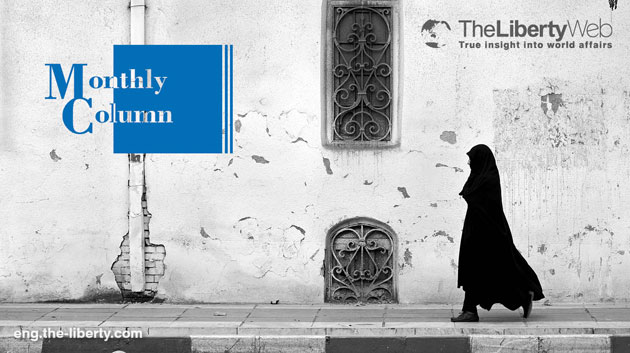Three Possible Ways to Implement Islamic Reforms
Chief Editor’s Column
Three Possible Ways to Implement Islamic Reforms
In the Middle East and Africa, Islamic fundamentalism is gaining momentum, and the clash between Christianity and Islam is intensifying.
When Islamic extremists struck again with the Algerian hostage crisis in January, it showed the world one more time that the fight against Islamic terrorism is still dragging on all these years after the crusaders rose against the forces of Islam. Mohamed Morsi, the President of Egypt and a leading member of the Muslim Brotherhood, an Egyptian Muslim fundamentalist group born out of the Arab Spring movement, wants to introduce legislation based on the Sharia (Islamic religious law).
While President Obama is calling for reconciliation with Islam and withdrawing American troops from Iraq and Afghanistan, the chaos still continues to spread.
How Can We Handle Islam’s Anti-Modernity?
Today, the world is facing the difficult issue of how to handle Islam as Islamic fundamentalism is on the rise, and Islam’s anti-modernity and backwardness are increasingly more pronounced.
Although Islam claims that it’s a peaceful and tolerant religion, a section of the Quran exists, directly dictated by Allah to Muhammad, which calls for the annihilation of non-Muslims. (“Kill the polytheists wherever you find them, capture and besiege them”, Quran 9:5). The Quran also states that if a Muslim loses his life in such a fight, his soul will ascend to Heaven.
Even if only part of the Muslim population embraces these extremist views and is determined not to budge from what the Quran dictates, the Islamic world’s lack of tolerance and excessively aggressive position will persist in being serious problems for the international community.
When we look at the recent increase in Islamic terrorist attacks, we need to be aware of the fact that apart from the ruling classes, Arabs in the Middle East are generally plagued with poverty. The teachings of Islam have permeated all sections of Arab society, which is why the Arab world is unable to keep up with modernization, and its development has stagnated.
In countries that base their legal system on the Quran and the Shariah, human rights are virtually non-existent. Sexual intercourse out of wedlock is punished with death by stoning, and when a woman is raped, she is at fault. When thieves are punished, their hands and feet are cut off. In the early days, even converting from Islam to another religion was punished by death, which rendered religious freedom – the most important human right – nonexistent.
The world is praying for Islamic reforms. In my eyes, there are three possible ways for the reformation of Islam.
1. Emulating Japan – How to Make a Fresh Start After the Loss of a War
History shows that usually, after a country loses a war, the church and state separate. For example, after the Thirty Years’ War (1618-1648), which was a religious war, many countries decided to separate their religious views and the work of their governments. After WWII, for instance, the U.S. eliminated State Shinto in Japan.
Iraq and Afghanistan both lost in the war against the U.S. after over a decade of fighting, and they have started to rebuild their countries, but the Islamic nature of their governments have remained unshaken. Will a future war between Iran, Israel, and the U.S. bring defeat to the Islamic side? If it transpires, then the sacrifice could be significant. At the same time, it could finally lead to innovation in the Islamic world, and Postwar Japan could be a model for the Arab countries that would like to make fresh starts.
2. Emulating Turkey: A Strong Leader in Implementing Reforms
In 1922, after the demise of the Ottoman Empire, Atatürk, the first Turkish president, established modern Turkey and abolished Islam as the state religion and Shariah law as state legislation. He introduced a parliamentary democracy, and Atatürk modernized Turkey.
Atatürk felt strongly inspired by the Meiji Restoration, and he wanted Turkey to become like Japan, the first Eastern nation that had become a completely modern power after it defeated enormous Russia. He greatly respected the Meiji Emperor, and Atatürk had a photograph of him above his desk.
What Atatürk had learned from Japan was that if ordinary citizens were able to work hard and be self-reliant, then an entire nation could prosper. Today, Meiji Japan should be a model for the Islamic world.
3. Emulating Christianity: Following Great Reformers
Every religion has a certain lifespan. In the case of Christianity, in the 14th and 15th centuries, when the Christian clergy oppressed Christians, reformers like Wycliffe and Hus demanded the popularization of the Bible.
In the 16th century, Luther and Calvin picked up the thread and founded Protestantism, which respected human rights, which included the freedoms of religion and expression, and he laid the groundwork for modern democracy and capitalism.
Islam was founded around the year 600. 1,400 years have passed since then, and it is high time for the Islamic world to implement reforms.
Suggestions 1 and 2 above involve separating religion and the state, but if Islam reformed itself and stopped getting in the way of the modern state and economy, this separation might not be necessary. The key to prevent the separation would be to cast light on the true nature of Allah, and to take in the ideas of Happy Science, a religion that has already overtaken Protestantism by far in terms of prosperity and foresight.
No matter which of these three paths Islamic society will take on its way to modernization, it requires the emulation of Japanese ideas and principles of action, as well as a reproduction of Japan’s economic prowess and international stature. We need to be aware that Japan is also responsible for the reformation of the Islamic world.
Jiro Ayaori



















